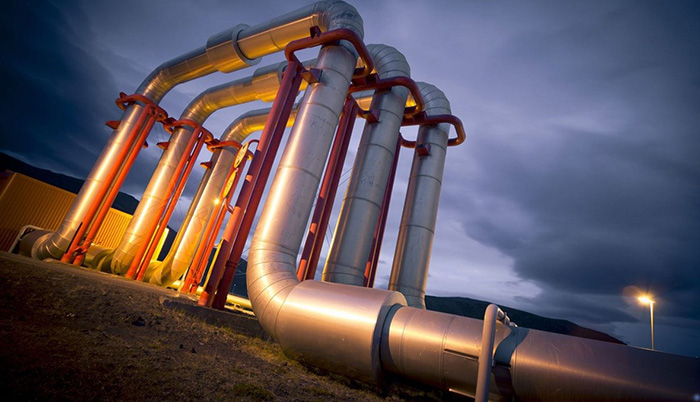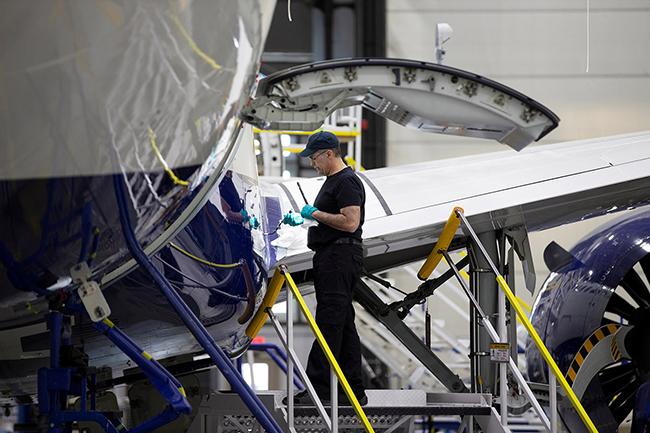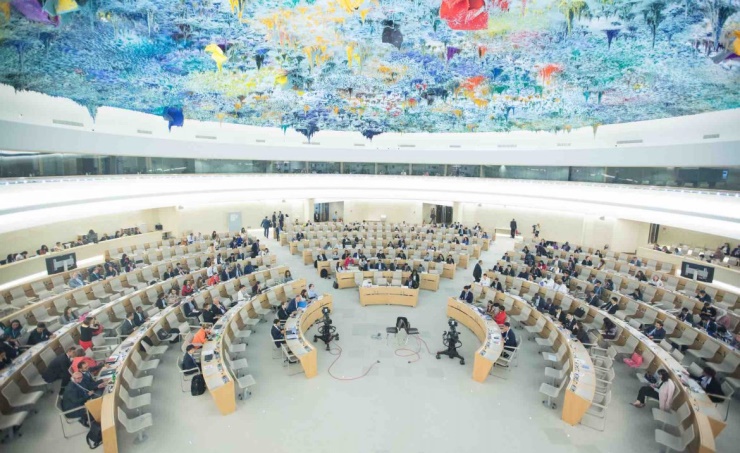Europe is more prepared than last year in having sufficient energy supplies, even in the event of anticipated cold spells, experts have said.
Europe, in a bid to reduce natural gas imports from Russia, increased liquefied natural gas (LNG) purchases, stocked up gas in storage facilities and raised the share of renewable energy in its portfolio.
Energy experts told Anadolu that although cold weather conditions will be a factor in Europe's demand, the continent's preparedness has made a difference.
Even with the recent cold weather in Europe, Anne-Sophie Corbeau, a global research fellow at Columbia University's School of International and Public Affairs, believes that natural gas supplies are sufficient right now.
Corbeau said that with an 83.5% storage filling rate as of Jan. 8, European storage levels are very close to the maximum level observed over the past 10 years.
This has been supported by healthy supply rates from Norway, where there is no planned maintenance for the next few weeks, and by large-scale LNG deliveries to Europe, despite the surge in LNG exports to North East Asia in December last year.
The Dutch government has also decided to restart Groningen production due to the cold snap, she said.
In addition, Russian pipeline gas deliveries through Ukraine and Türkiye are still continuing, albeit at significantly reduced levels compared to 2021, when 140 billion cubic meters (bcm) of gas was transmitted, but this fell to just 27 bcm last year.
As a result, gas prices have not significantly increased over the past weeks and remain in the low €30 per megawatt-hour (MWh) as of the second week of January, relative to price spikes seen during the worst of the crisis in 2022 at above €300 per MWh.
Corbeau underlined that while heating demand from the residential sector has increased due to the cold weather, industrial gas demand has remained depressed throughout 2023.
She said that, in contrast to early 2023, the situation is considerably better regarding French nuclear generation and European hydro levels, both of which are helping prevent a significant rise in gas demand in the power sector.
Corbeau elaborated that gas demand in the power sector dropped last year due to the combination of lower power demand at the transmission level as well as higher hydro and renewable levels.
"Looking forward, EU gas demand levels in 2024 may largely depend on how cold the weather will be, given the significant impact of temperatures on EU gas demand. Gas demand in the EU power sector is likely to continue to drop, driven by the increasing contribution of renewables (wind and solar) and potentially a higher contribution of nuclear, notably in France, where Flamanville is expected to start," she said.
However, she warned of the impact of droughts on raising gas demand this year, especially if they are combined with hot weather to drive up power demand in the summer.
"Whether EU industrial gas demand recovers in line with lower gas prices is still uncertain due to the macroeconomic headwinds faced by European industrial users as well as competition from other regions," she said.
Corbeau does not anticipate any major increases in global LNG supplies this year.
She noted the headwinds Russia is facing with its Arctic LNG 2 project, which is due to start in the first quarter.
She also cited that other large LNG projects, like the Plaquemines and Corpus Christi facilities in the US, will only start at the end of the year if they are not delayed.
Other projects that are due to start early this year, such as the Tortue Floating LNG (FLNG) in Senegal and Mauritania or the Congo FLNG, are small.
She further explained that transit issues are of concern with low water levels in the Panama Canal, and Houthi attacks on ships have caused bottlenecks in the Panama and Suez Canals, which have forced ship owners to take alternative, longer routes.
"Meanwhile, 2024 could very well see the end of Russian transit through Ukraine as the transit contract expires at the end of the year," she added.
Storage levels are still significantly above ten-year averages
Jonathan Elkind, a senior research scholar at Columbia University's Center for Global Energy Policy and a former energy official in the Clinton and Obama administrations, also shared his confidence in Europe's ability to have sufficient natural gas supplies this winter.
"Although much of Europe is experiencing very cold weather at present, I see no reason to worry about the adequacy of natural gas supply in the European Union this winter," he said.
He also echoed that storage levels are still significantly above ten-year averages, in part due to a significant drop in gas-dependent industrial demand across Europe since the Russia-Ukraine War started. Another contributing factor is the number of heating-degree days, the standard measure of how cold the weather has been for how long, which has been below average.
"One can never speak with complete certainty about these matters, but even if Europe's cold snap were to last for some time, I don't think that natural gas supply will be a big problem this year because European gas suppliers have planned and prepared very seriously," Elkind said.
Source: Anadolu






